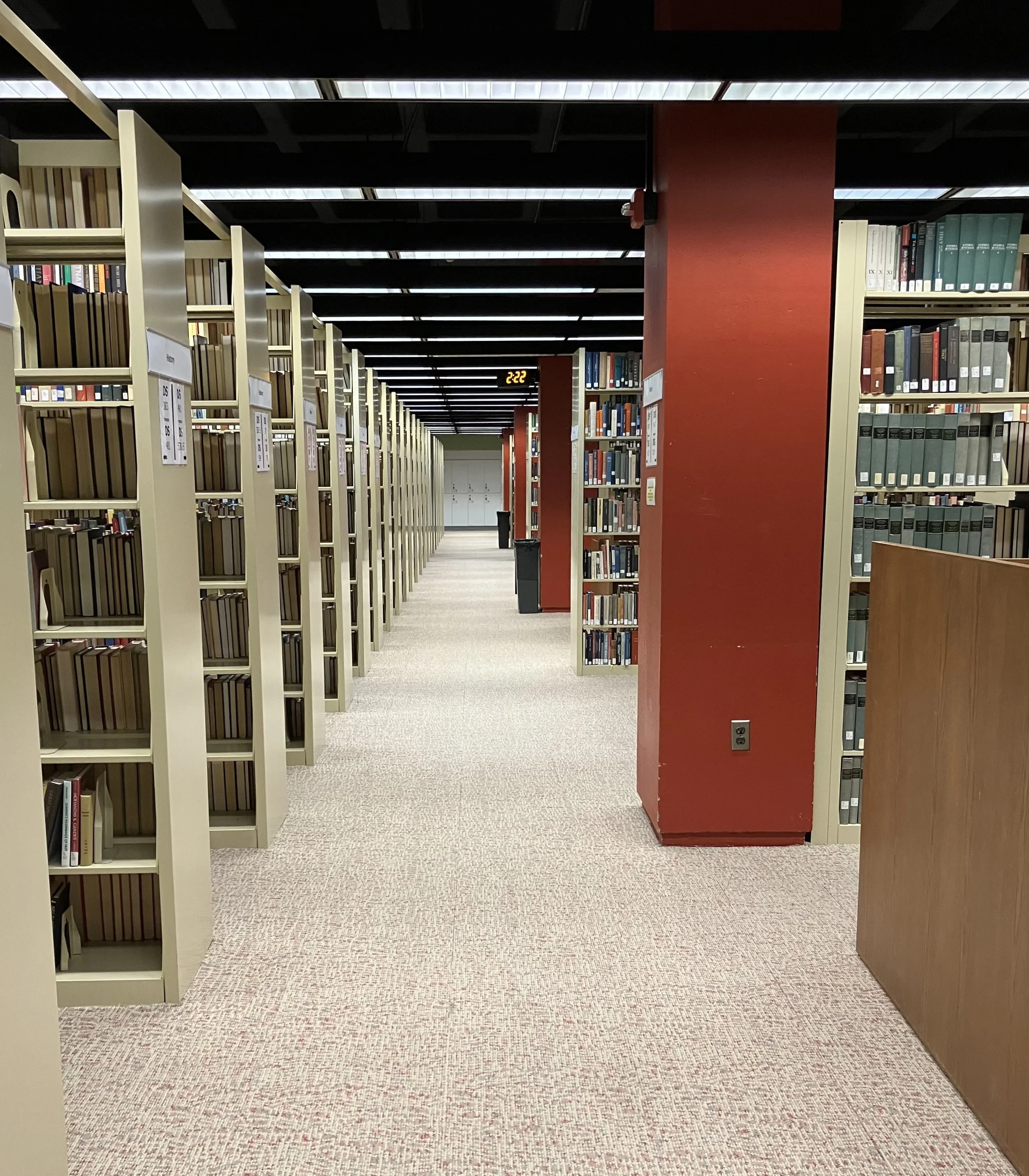As you may suspect, living in a college town has its tradeoffs, but one perk I am enjoying is free access to a wealth of knowledge at not one but two world class university libraries in the form of Washington and Lee University (W&L) and Virginia Military Institute (VMI). And at the VMI library the other day I serendipitously came across a collection of what has come to be called The Harvard Classics (partially pictured above).
Originally marketed as “Dr. Eliot’s Five-Foot Shelf of Books,” the collection is a 50-volume series of classic works of world literature, important speeches, and historical documents compiled and edited by Harvard University President Charles Eliot and published in 1910. Eliot believed that following the reading plans for the series included in Volume 50 would offer a reader, in as little as 15 minutes a day, the condensed benefits of a liberal education.
In his introduction to the series, Eliot made it clear that the Harvard Classics were intended not as a mere compilation of the “world’s best books,” but as a portable university. While the volumes are numbered in no particular order, he suggested that they could be approached as a set of six courses: “The History of Civilization,” “Religion and Philosophy,” “Education,” “Science,” “Politics,” and “Criticism of Literature and the Fine Arts.”
And speaking of university libraries, former Harvard professor Lewis Hyde wrote in his “Created Commons” essay: “In Thoreau’s case, the most important feature of the accumulated wealth that was Harvard College turned out to be its library, only fifty thousand volumes in the late 1830s but nonetheless the best in the nation. Years later, just before his death, Thoreau told a young man about to enter Harvard that its collection of books was the finest gift the institution had to offer.”
As followers of our minimalist journey know, I have whittled my once sizable library from more than 1,500 volumes to only about 50 or so titles today, covering about five feet of shelf space, as it turns out, with another 50 or so electronic copies of books occupying only digital space. But in addition to the two college libraries I have joined two local counties’ library systems, giving me free access to another dozen library branches, so life is good for this book lover. And I encourage you to avail yourself of whatever library resources you have at your disposal!




